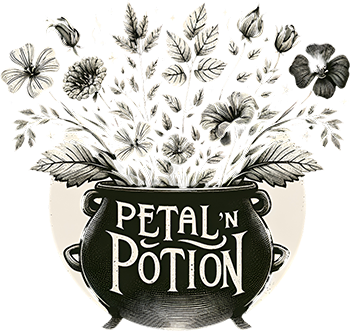M u g w o r t
Mugwort (Artemisia vulgaris) is a perennial herb native to Europe, Asia, and North America.
It has been used for centuries in traditional medicine and various cultural practices for its wide range of benefits,
particularly for digestive, menstrual, and nervous system health
Benefits
- Digestive Health: Alleviates digestive issues such as indigestion, bloating, and constipation.
- Menstrual Support: Helps regulate menstrual cycles, relieve cramps, and manage premenstrual syndrome (PMS).
- Nervous System Support: Reduces anxiety, stress, and aids in treating insomnia.
- Anti-Inflammatory: Reduces inflammation, aiding conditions like arthritis and other inflammatory diseases.
- Antimicrobial Properties: Exhibits antibacterial, antifungal, and antiviral effects that help prevent infections.
- Skin Health: Treats skin conditions such as eczema, psoriasis, and rashes.
- Liver Health: Supports liver function and aids in detoxification.
Active Compounds
- Essential Oils: Including thujone and cineole, known for their antimicrobial and therapeutic properties.
- Flavonoids: Provide antioxidant and anti-inflammatory benefits.
- Coumarins: Contribute to the plant’s antimicrobial and anti-inflammatory effects.
- Triterpenes: Offer additional anti-inflammatory benefits and support liver health.
- Sesquiterpene Lactones: Known for their bitter properties, which aid in digestion.
Who Should Avoid This
- Individuals with Allergies: Those allergic to mugwort or other plants in the Asteraceae family (such as ragweed, daisies, and marigolds) should avoid it.
- Pregnant and Nursing Women: Due to its potential to stimulate menstruation and uterine contractions, it is advisable to consult a healthcare provider before use.
- Individuals with Epilepsy or Seizure Disorders: Should avoid using mugwort due to the presence of thujone, which may trigger seizures.
- Individuals on Medication: Particularly those taking anticonvulsants or sedatives should consult a healthcare provider to avoid interactions.
Warnings
While mugwort offers numerous health benefits, some precautions and potential side effects should be considered:
- Allergic Reactions: Can cause allergic reactions in some individuals, particularly those sensitive to plants in the Asteraceae family.
- Pregnancy and Breastfeeding: Consult a healthcare provider before use, as mugwort may stimulate menstruation and uterine contractions.
- Toxicity: Contains thujone, which can be toxic in high doses; avoid excessive consumption.
- Interactions with Medications: May interact with certain medications, including anticonvulsants and sedatives.
Usage Guidelines
Mugwort can be used both short-term and long-term, depending on the condition being treated. For acute issues such as digestive discomfort or menstrual cramps, it is typically used until symptoms improve. For ongoing benefits such as anxiety relief or skin health, longer-term use may be appropriate but always under the guidance of a healthcare professional. Always consult with a healthcare provider to determine the correct dosage and duration for your specific needs.
